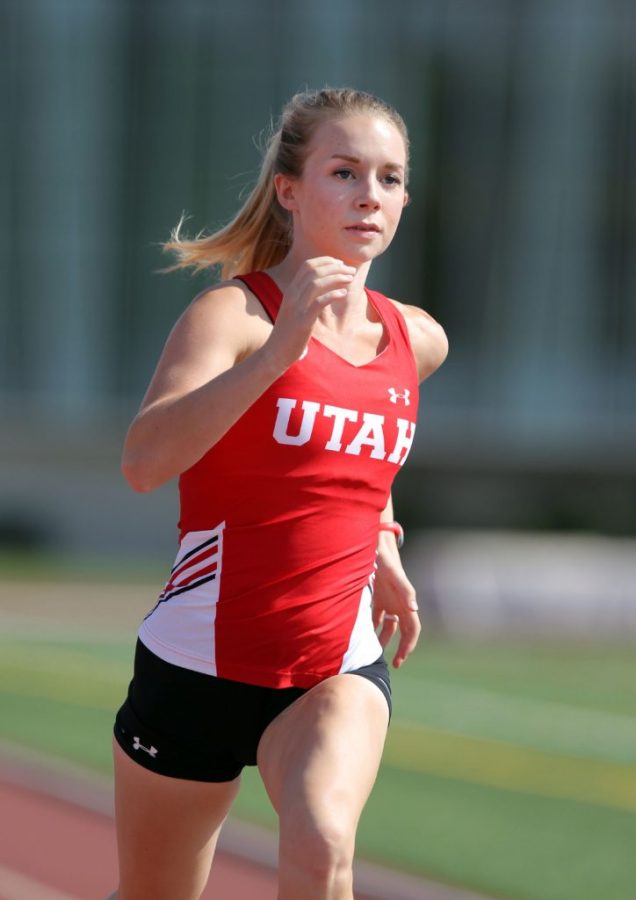For student-athletes, the body works like an instrument for their given sport. When it comes to deciding what major to pursue, however, it’s more of a guessing game. Raynee Helm Wheelock, a sprinter for University of Utah women’s track and field team, knew what she wanted to study — kind of.
When Helm Wheelock first came to Utah, she wanted to go to physician assistant (PA) school. When she started taking classes, however, she realized what she truly wanted to do was not what she originally planned.
“As I’ve gotten more into the major, I’ve found out that what I actually want to do is exercise sports science and teaching exercise and personal training, so I switched my emphasis to the fitness and wellness specialist,” Helm Wheelock said.
It is not uncommon for track athletes to pursue a degree in kinesiology. Kyle Kepler, head coach of the women’s track and field team, knows when choosing a major, students like to go into something that has some sort of significance in their life. Consequently, many student-athletes choose to study kinesiology — the study of the mechanics of body movements.
“I think these gals want to stay as close to athletics as they can,” Kepler said. “It’s one of the things that’s allowed them to be successful in their lives. It’s a major where there are a lot of different ways to go with it in life, and they don’t have to make the decision they are going to be a doctor from freshman or sophomore year. They can kind of go along [with it]. There [are] a lot of forks in the road they can choose to take when they get later in their careers.”
According to Kepler, kinesiology is a good major to prepare students for a variety of careers, like physical or occupational therapy. It can help students who are planning on going to medical school or another health-driven field. It can also help those who are pursuing careers more related to physical or recreational activities.
“I think that major allows them to keep their options open as long as possible while they are still trying to compete at a high level,” Kepler said.
Helm Wheelock likes being able to use her education in everyday life as opposed to having to wait until after graduation.
“I’m able to see the things I’m learning and see [them] applied. My coaches [are] applying it to me through my sport,” she said. “I also think since I changed my emphasis my confidence has started to grow more. I’ve been more confident on the track.”
Kepler says having athletes who understand what is going on with their bodies makes it easier for the two parties to communicate about what is happening during competition. To him, physical and mental performance increases when they have an understanding of the training process.
Though Helm Wheelock can’t see many downsides to being a student-athlete studying kinesiology, she sometimes finds it difficult when others expect her to know everything. Helm Wheelock teaches small fitness classes to earn class credit and experience.
“Some of my participants, when they find out I’m a student-athlete, they kind of expect me to know everything, but I’m still learning — I’m still a student,” she said.
Helm Wheelock believes there is a strong connection between studying fitness and being a student-athlete in any sport. She plans to specialize in the areas of fitness and wellness since it is something she has been passionate about for many years. Kinesiology has allowed her to pursue her love for sport inside the classroom and out on the track.
Kepler has enjoyed having Helm Wheelock on the team due to her strong work ethic and seriousness, as well as having someone who is easy to communicate with.
@s_mora99



